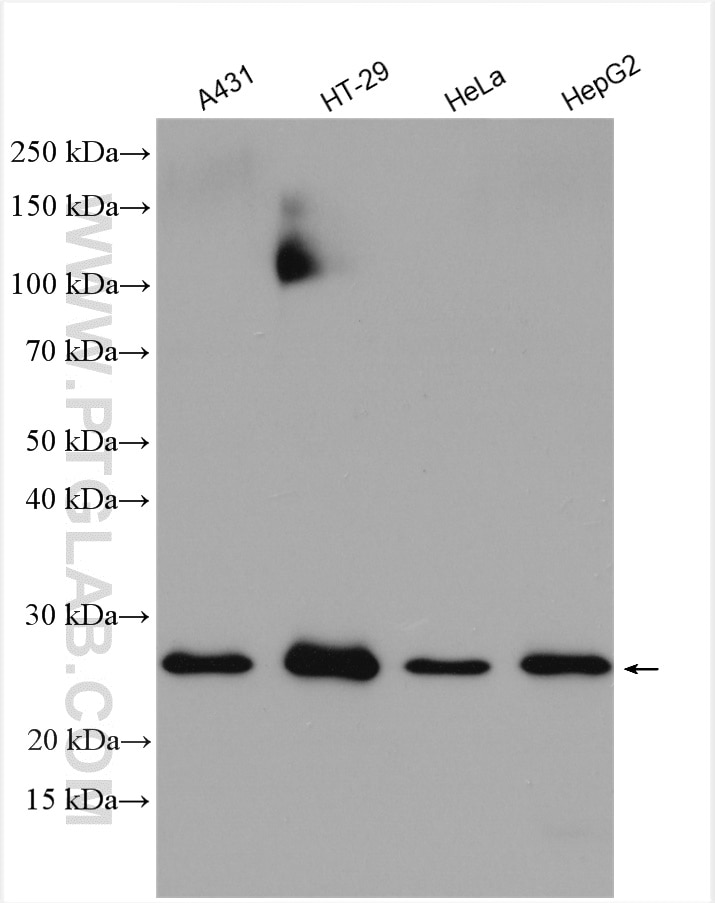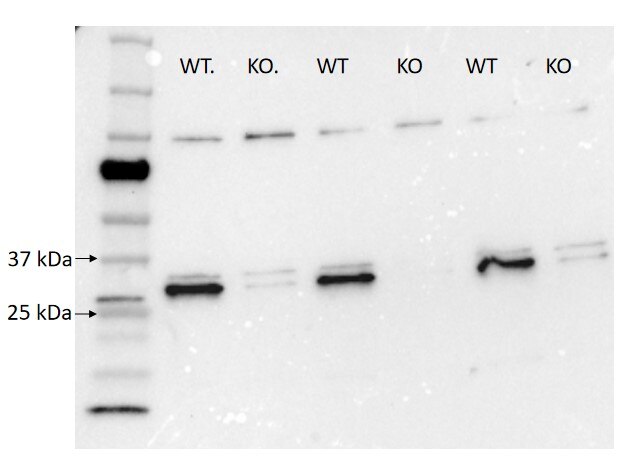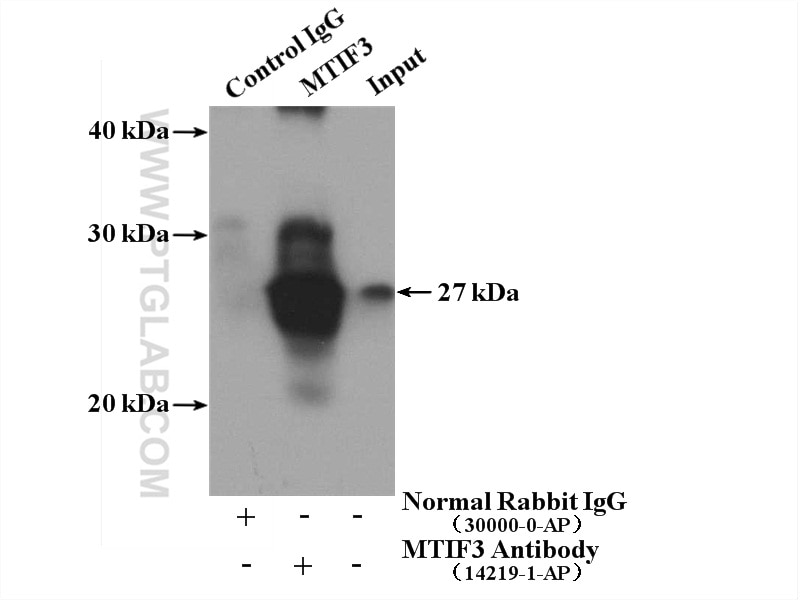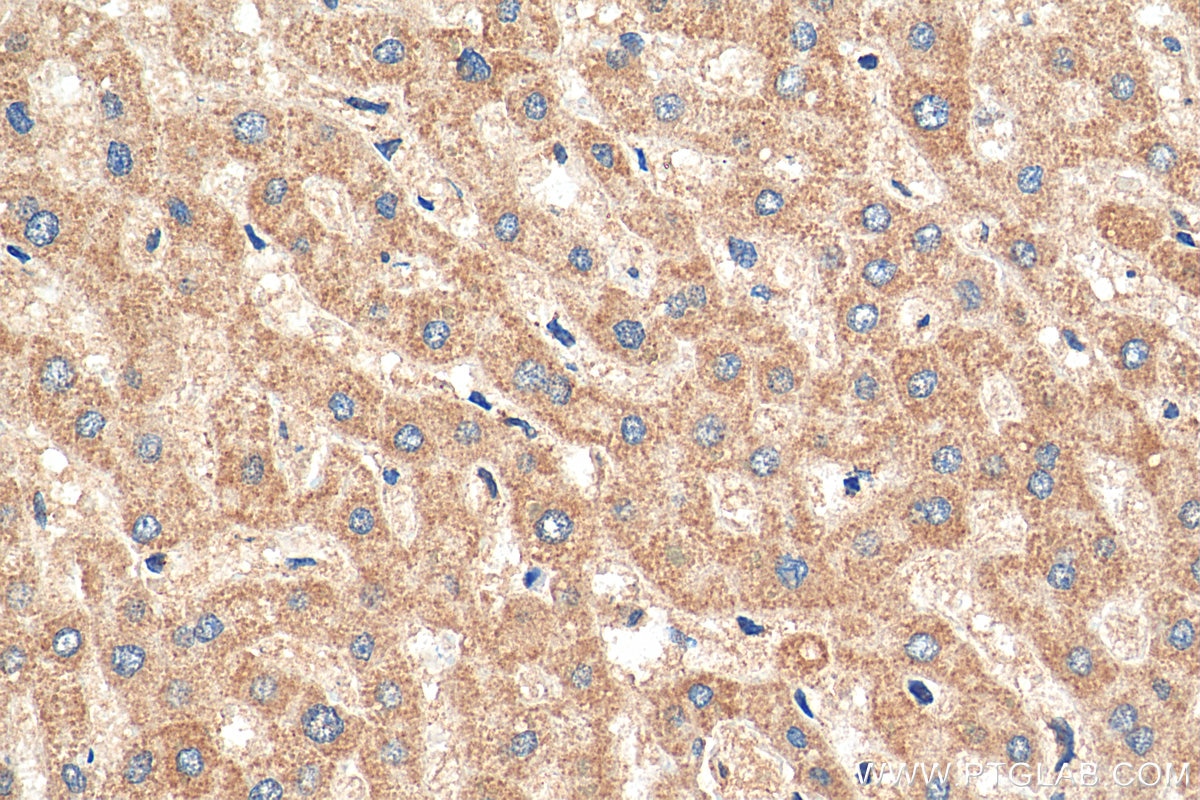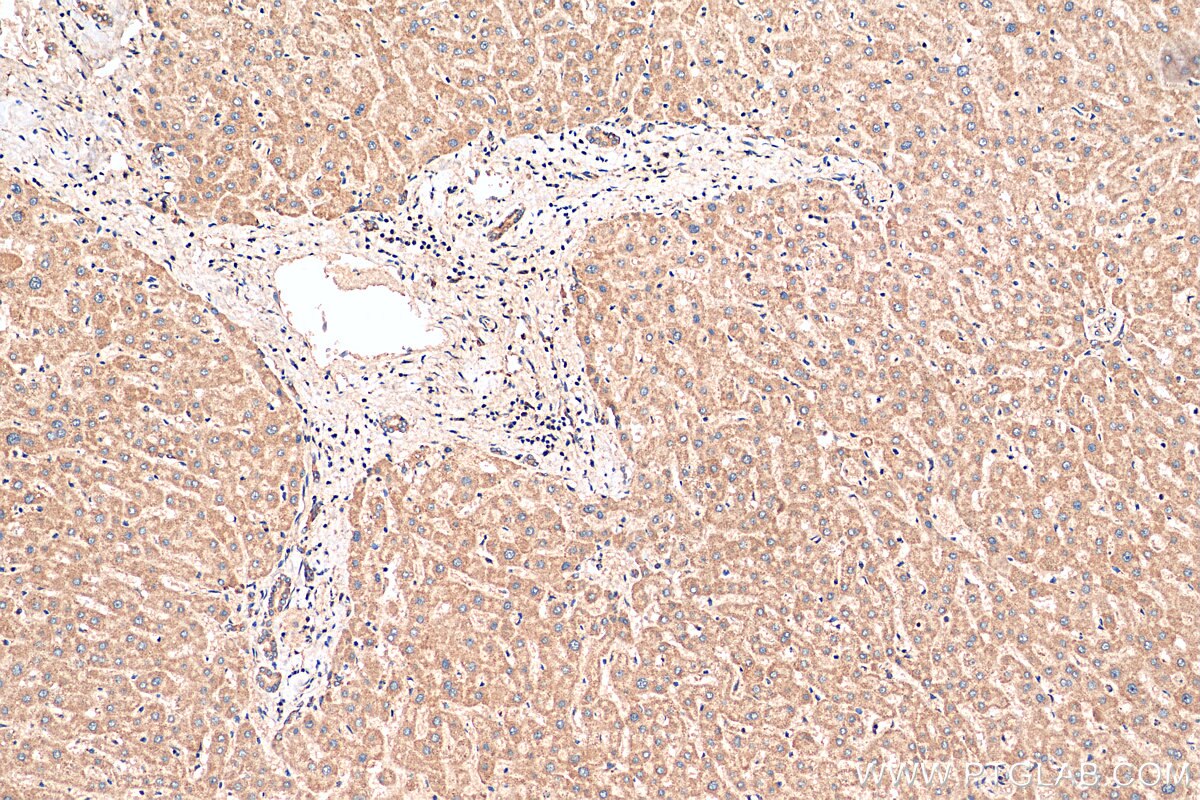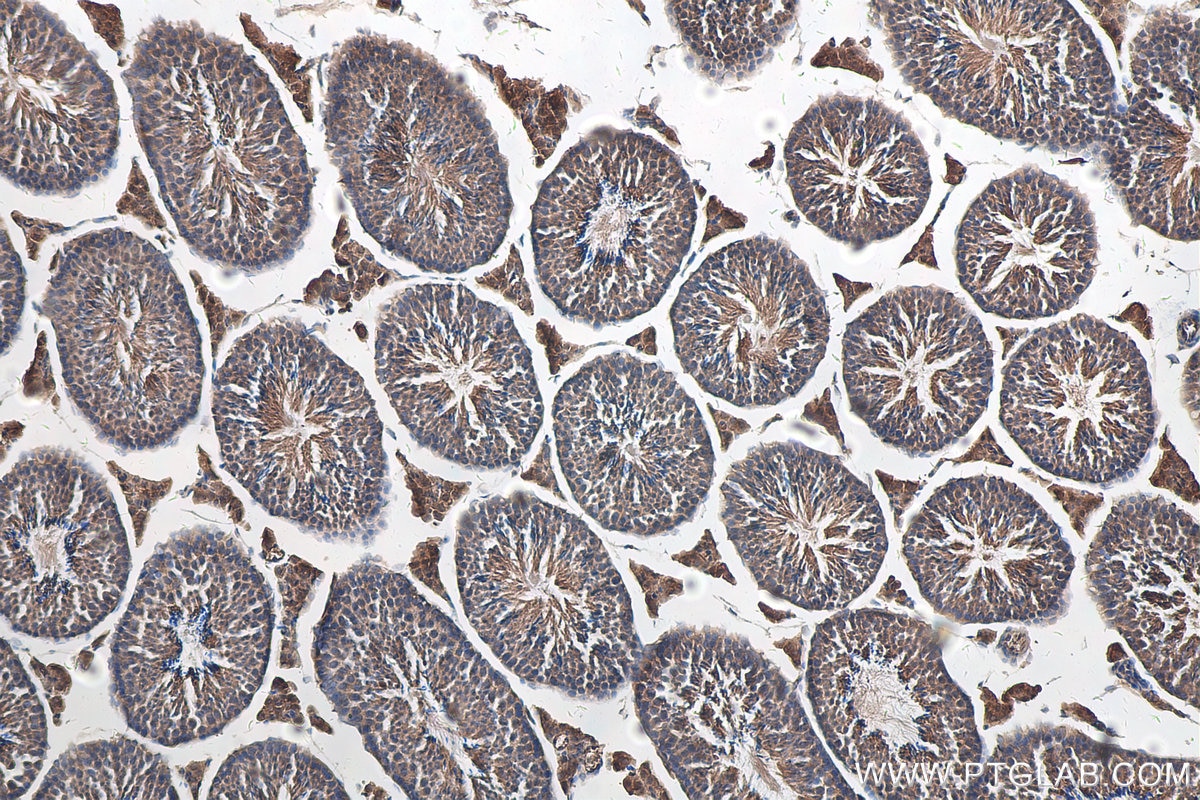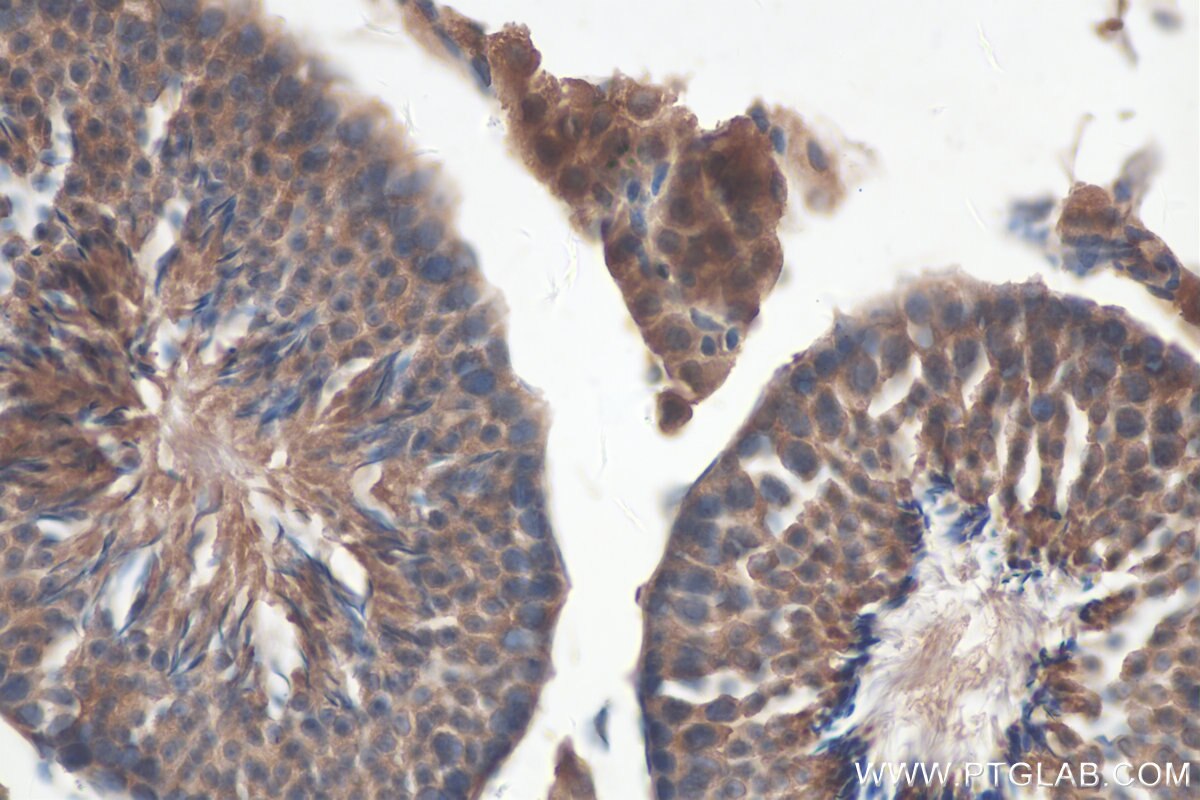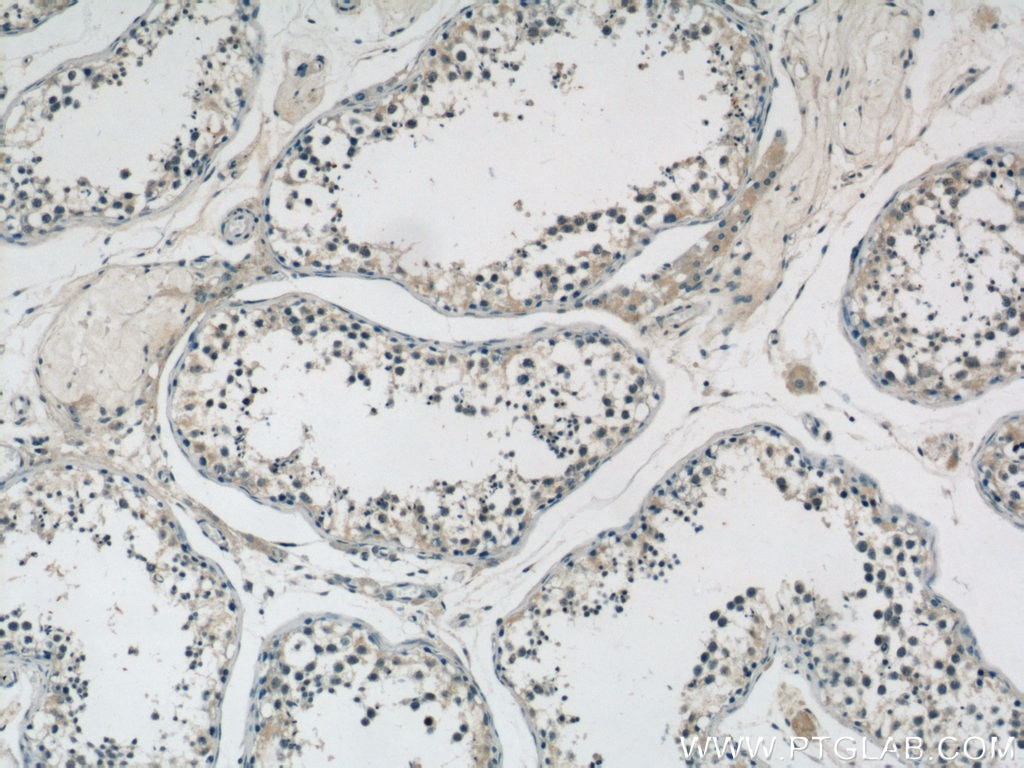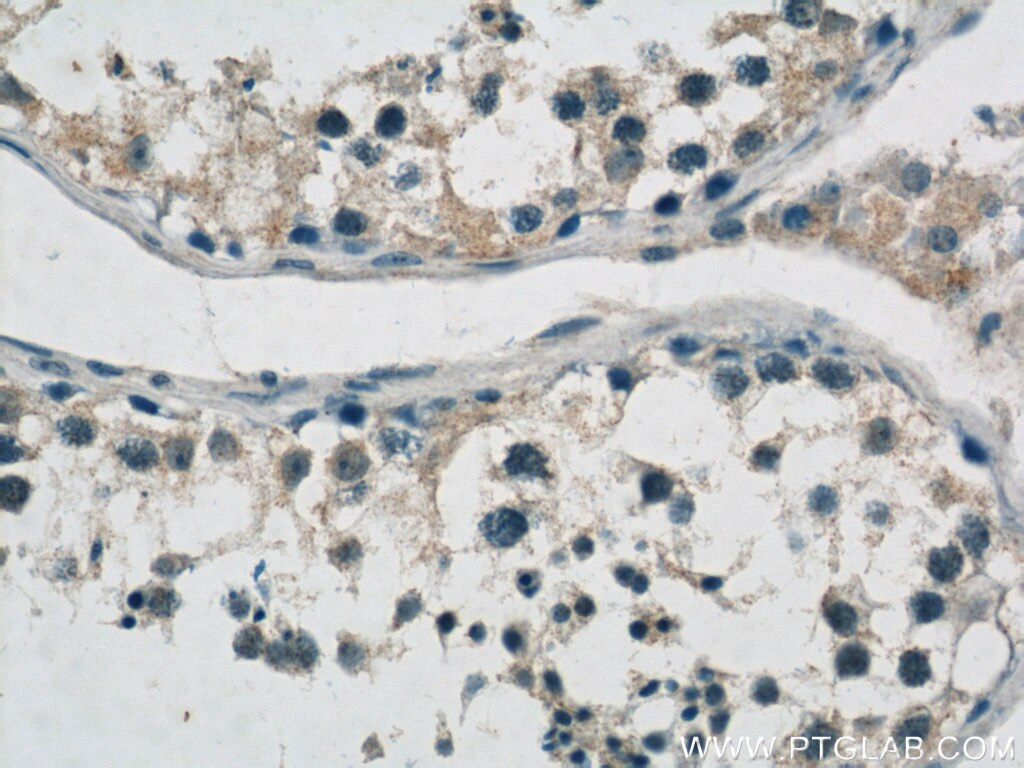- Featured Product
- KD/KO Validated
MTIF3 Polyklonaler Antikörper
MTIF3 Polyklonal Antikörper für IHC, IP, WB, ELISA
Wirt / Isotyp
Kaninchen / IgG
Getestete Reaktivität
human, Maus und mehr (1)
Anwendung
WB, IP, IHC, ELISA
Konjugation
Unkonjugiert
Kat-Nr. : 14219-1-AP
Synonyme
Galerie der Validierungsdaten
Geprüfte Anwendungen
| Erfolgreiche Detektion in WB | A431-Zellen, HeLa-Zellen, HepG2-Zellen, HT-29-Zellen |
| Erfolgreiche IP | HeLa-Zellen |
| Erfolgreiche Detektion in IHC | humanes Lebergewebe, humanes Hodengewebe, Maushodengewebe Hinweis: Antigendemaskierung mit TE-Puffer pH 9,0 empfohlen. (*) Wahlweise kann die Antigendemaskierung auch mit Citratpuffer pH 6,0 erfolgen. |
Empfohlene Verdünnung
| Anwendung | Verdünnung |
|---|---|
| Western Blot (WB) | WB : 1:500-1:2000 |
| Immunpräzipitation (IP) | IP : 0.5-4.0 ug for 1.0-3.0 mg of total protein lysate |
| Immunhistochemie (IHC) | IHC : 1:50-1:500 |
| It is recommended that this reagent should be titrated in each testing system to obtain optimal results. | |
| Sample-dependent, check data in validation data gallery | |
Veröffentlichte Anwendungen
| WB | See 6 publications below |
Produktinformation
14219-1-AP bindet in WB, IP, IHC, ELISA MTIF3 und zeigt Reaktivität mit human, Maus
| Getestete Reaktivität | human, Maus |
| In Publikationen genannte Reaktivität | human, Maus, Ratte |
| Wirt / Isotyp | Kaninchen / IgG |
| Klonalität | Polyklonal |
| Typ | Antikörper |
| Immunogen | MTIF3 fusion protein Ag5457 |
| Vollständiger Name | mitochondrial translational initiation factor 3 |
| Berechnetes Molekulargewicht | 32 kDa |
| Beobachtetes Molekulargewicht | 29 kDa |
| GenBank-Zugangsnummer | BC046166 |
| Gene symbol | MTIF3 |
| Gene ID (NCBI) | 219402 |
| Konjugation | Unkonjugiert |
| Form | Liquid |
| Reinigungsmethode | Antigen-Affinitätsreinigung |
| Lagerungspuffer | PBS mit 0.02% Natriumazid und 50% Glycerin pH 7.3. |
| Lagerungsbedingungen | Bei -20°C lagern. Nach dem Versand ein Jahr lang stabil Aliquotieren ist bei -20oC Lagerung nicht notwendig. 20ul Größen enthalten 0,1% BSA. |
Hintergrundinformationen
MTIF3, also named as DC38, belongs to the IF-3 family. MTIF3 encodes a 29 kDa protein that promotes formation of the initiation complex on the mitochondrial 55S ribosome, thereby playing an active role in initiation of translation. Like bacterial IF3, MTIF3 is believed to bind first to the small mitoribosomal subunit to keep it dissociated from the large subunit during initiation. After binding of MTIF3, mRNA and formylated initiator methionyl-tRNA (fMet-tRNAifMet) bind to the small mitoribosomal subunit. The large subunit then joins the small subunit to form an elongation-competent ribosome (PMID:20887776, 31350787).
Protokolle
| Produktspezifische Protokolle | |
|---|---|
| WB protocol for MTIF3 antibody 14219-1-AP | Protokoll herunterladen |
| IHC protocol for MTIF3 antibody 14219-1-AP | Protokoll herunterladen |
| IP protocol for MTIF3 antibody 14219-1-AP | Protokoll herunterladen |
| Standard-Protokolle | |
|---|---|
| Klicken Sie hier, um unsere Standardprotokolle anzuzeigen |
Publikationen
| Species | Application | Title |
|---|---|---|
Sci Adv Fidelity of translation initiation is required for coordinated respiratory complex assembly. | ||
EMBO J Stress signaling and cellular proliferation reverse the effects of mitochondrial mistranslation. | ||
Sci Rep Initiation Factor 3 is Dispensable For Mitochondrial Translation in Cultured Human Cells. | ||
Sci Total Environ Fluoride impairs mitochondrial translation by targeting miR-221-3p/c-Fos/RMND1 axis contributing to neurodevelopment defects | ||
Elife Identification of a weight loss-associated causal eQTL in MTIF3 and the effects of MTIF3 deficiency on human adipocyte function |
Rezensionen
The reviews below have been submitted by verified Proteintech customers who received an incentive forproviding their feedback.
FH Mi (Verified Customer) (02-10-2023) | It works pretty well! We tried different antibodies from other suppliers, and this one gives a specific band, as we expected from the knockout samples. Although, we did observe some non-specific bands, having a knockout control would validate the target band.
|
